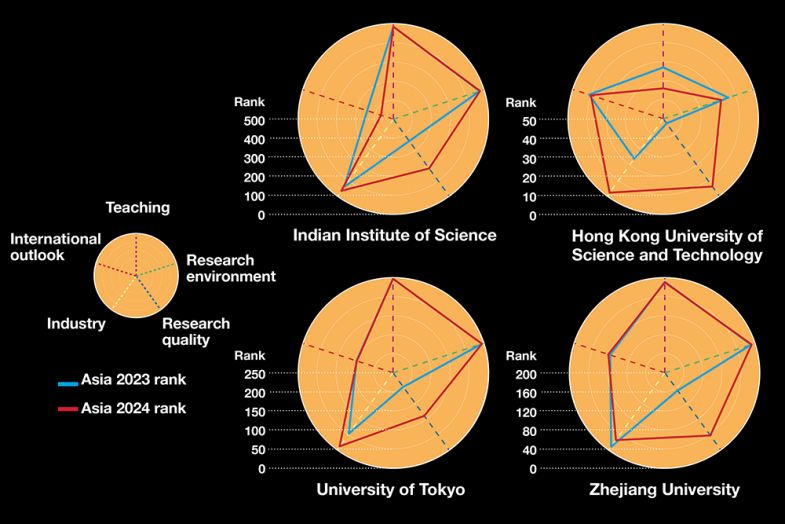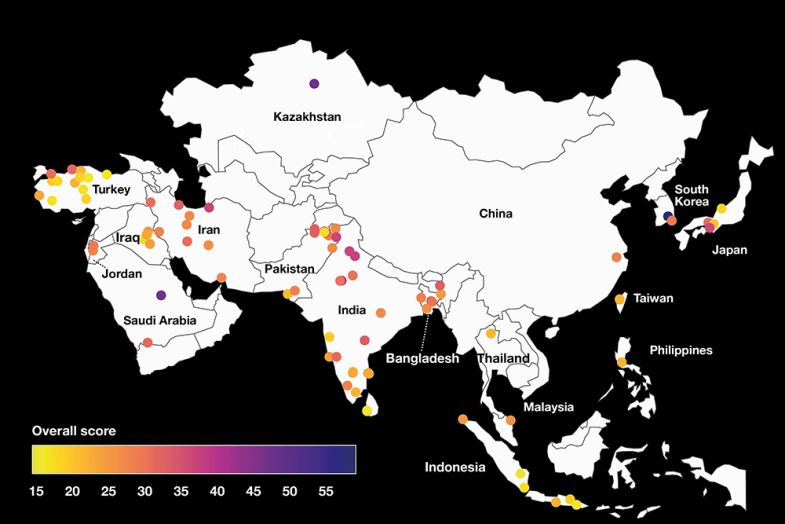Browse the full results of the Asia University Rankings 2024
This year, there have been some shifts in the ranks of established universities across Asia. These radar charts, showing the 2024 and 2023 pillar ranks for four institutions, reveal what is driving the changes.
All of the universities significantly improved under the research quality pillar (an area of the methodology that has been substantially updated this year). But there have been developments elsewhere, too.
The University of Tokyo is in the top five for the first time (up from eighth last year) and experienced a boost in the Industry pillar.
Pillar ranks of four established universities, 2023 v 2024

The Indian Institute of Science, which has a profile similar to that of Tokyo, is now 32nd, up from 48th, and also moved up the ranks in industry. Its decline under international outlook was not substantial enough to stop it achieving its strongest overall performance since 2019.
Asia University Rankings 2024: results announced
The Hong Kong University of Science and Technology, meanwhile, has dropped out of the top 10 for the first time, despite the research quality improvement. Now 12th in the region, down from seventh, HKUST saw a decline in its research environment rank. It also moved down the ranks in teaching, despite achieving a slightly higher score in that area compared with last year, as it did not improve relative to other universities in the table.
HKUST’s drop makes room for Zhejiang University in China, a well-rounded performer, which is now ranked ninth, up from 12th – its highest-ever position. It improved in the international pillar.
Map shows this year’s new rankings participants, coloured by overall score

Meanwhile, the map shows the location and overall score of all the first-time entrants this year, demonstrating an increase in the number of participants from West and South Asia in particular.








